Four years after the COVID-19 pandemic first took hold in Colorado, the state Supreme Court announced last week it will review the constitutionality of two judges' decisions to bar spectators from their courtrooms and instead rely upon livestreaming during a pair of criminal trials.
At least three of the court's seven members must agree to hear a case on appeal.
The Sixth Amendment guarantees criminal defendants the right to a public trial. The U.S. Supreme Court has recognized public attendance benefits the criminally accused by permitting spectators to see a defendant is treated fairly and reminding trial participants about the importance of their work, among other reasons.
However, some circumstances may justify a judge's decision to not keep their courtroom open to everyone — such as a spectator causing disruption or the closure being "trivial" in nature. Under the Supreme Court's 1984 ruling in Waller v. Georgia, trial judges must consider specific factors when deciding whether to close a courtroom to one or more people. Unless justified, a violation of the right to a public trial triggers automatic reversal of a defendant's convictions.
During the COVID-19 pandemic, judges had to confront a new twist on the Sixth Amendment: how to keep their courtrooms open to the public at a time when gathering in enclosed spaces could be deadly.

Justice Maria E. Berkenkotter, at left, asks a question during the Colorado Supreme Court’s oral arguments in 2021.
Excluding all spectators 'exceeded what was necessary'
Michelle Re Nae Bialas was on trial for the second time in 2021, with public health protocols to prevent COVID-19 transmission still in place. Courtroom capacity was limited and another room in the courthouse had a live video feed of the trial. Beforehand, the parties agreed the families for Bialas and the victim would be in the courtroom, rather than the remote viewing room.
During the proceedings, some jurors reported hearing talk among the audience about Bialas' previous trial. Although the commentary appeared to come from the alleged victim's family, not Bialas', Gilpin County District Court Judge Todd L. Vriesman ordered everyone to the overflow room for the rest of the trial, saying he was "not going to sit around" to determine who was at fault.
Bialas appealed Vriesman's decision to close his physical courtroom to her family, and a three-judge panel for the Court of Appeals agreed Vriesman had not established a compelling reason to eject everyone in lieu of figuring out whose commentary was affecting the jury.
"The court did not simply admonish the spectators not to discuss the prior trial. Instead, it excluded the entire public, including Bialas’s family, based on the misbehavior of a few spectators," wrote Judge Ted C. Tow III last year. "This action exceeded what was necessary to insulate the jury from improper statements."
Turning to the state Supreme Court, the government challenged the appellate panel's decision to order a new trial based on a violation of Bialas' Sixth Amendment rights. Assistant Attorney General Jacey DeHoyos noted the Court of Appeals had recognized for the first time that a constitutional violation may still occur even when livestreaming is offered to spectators.
"When a courtroom is expanded through virtual accessibility, is a spectator excluded from trial when they are moved from the physical courtroom to the virtual courtroom?" she wrote. "This Court has never had the opportunity to answer this question or define the contours of the public trial right in the context of virtual proceedings. It should do so now."
DeHoyos added that Bialas' trial was still "public" because spectators saw evidence over the livestream and the trial participants were aware they were being observed remotely.
Public defender Meredith K. Rose urged the Supreme Court to turn down the case. She asked rhetorically if the government would feel as comfortable about livestreaming if the family of a murder victim were told to watch a trial in another room or online.
"Surely not, and surely the (prosecution) would be taking a different position about livestreaming under those circumstances," she wrote.
The Supreme Court will answer whether the exclusion of Bialas' family from the physical courtroom violated her Sixth Amendment rights.
The case is People v. Bialas.

Colorado Court of Appeals Judge Ted C. Tow III asks a question to Assistant Attorney General Jaycey DeHoyos, not pictured, during oral arguments in the second of two Colorado Court of Appeals cases being held in the library of Conifer Senior High School as part of the Courts in the Community educational outreach program on Tuesday, May 16, 2023, in Conifer, Colo. (Timothy Hurst/Denver Gazette)
First trial with COVID precautions
Isaiah Ismael Rios' jury trial was the first felony case to proceed in Boulder County following the onset of the COVID-19 pandemic. His October 2020 trial had multiple public health precautions, including distancing, masking and a livestream in an overflow room for spectators.
Rios, who was convicted of murder and other serious offenses, appealed the closure of the physical courtroom. Three months after the Court of Appeals issued its decision in Bialas' case, a different panel likewise agreed Rios' courtroom was partially closed to the public.
However, the panel concluded the exclusion was justified under the U.S. Supreme Court's test because of the overriding need to protect against COVID-19 infections.
"Therefore, given the limitations placed on the court by the public health emergency and the physical limitations of the courthouse, we conclude that the court implemented procedures no broader than necessary to protect trial participants from contracting or spreading COVID-19," wrote Judge Rebecca R. Freyre.
On appeal to the state Supreme Court, Rios noted he was willing to give up his right to a speedy trial and postpone the proceedings until vaccines were available, rather than forge ahead with a closed courtroom. He also suggested the trial could have been held at a "convention center, arena or performing arts venue" to accommodate the public.
"The trends that help new pandemics to emerge and spread — such as climate change, deforestation, urbanization, and globalization — continue unabated, and will likely give rise to new pandemics," wrote public defender River B. Sedaka. "This Court should take the opportunity now to provide meaningful guidance on how trial courts should honor defendants’ constitutional rights when these challenges re-arise."
The Supreme Court will review the Court of Appeals' decision upholding Rios' convictions.
The case is Rios v. People.


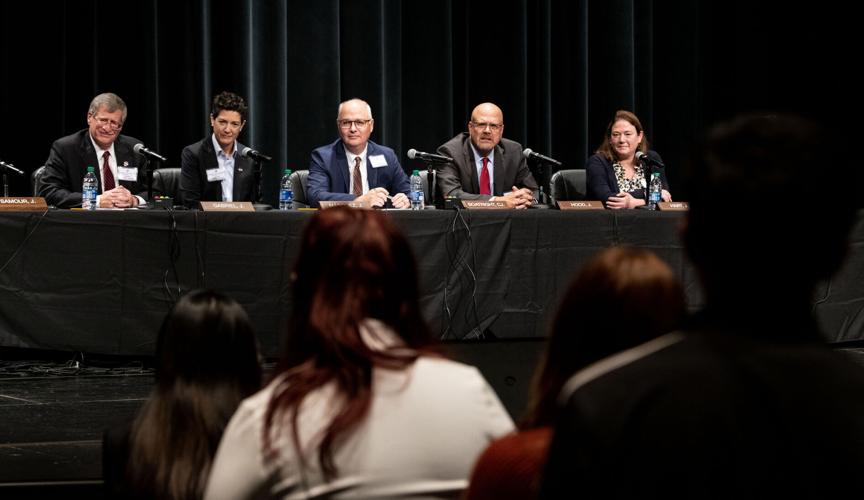
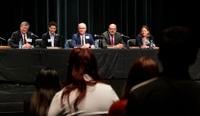
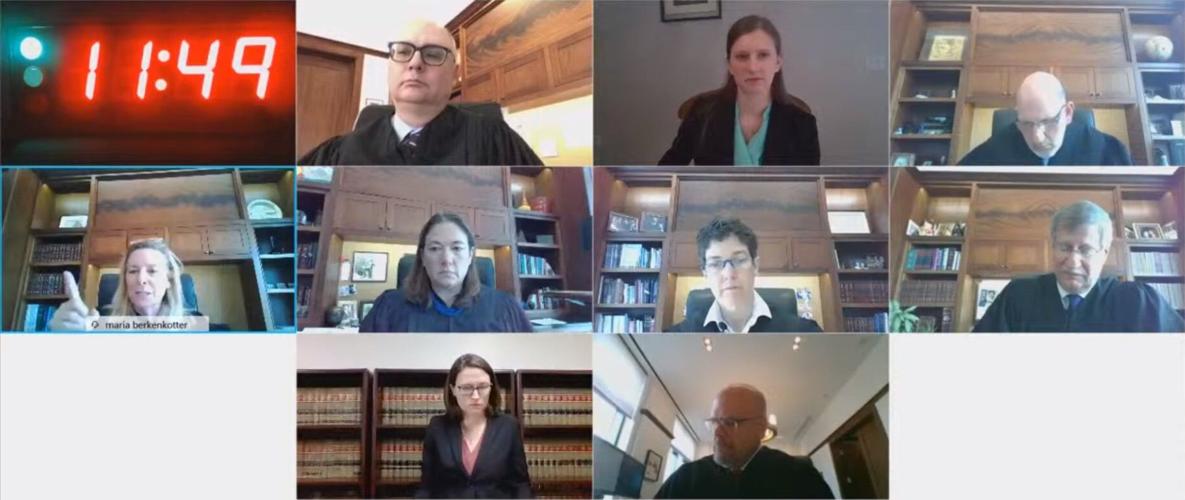


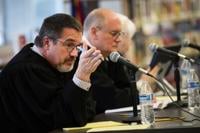
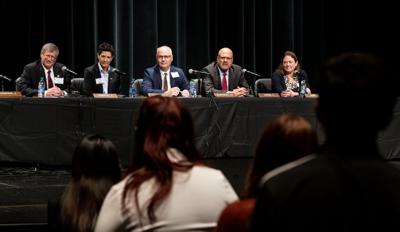

 Your Privacy Choices
Your Privacy Choices